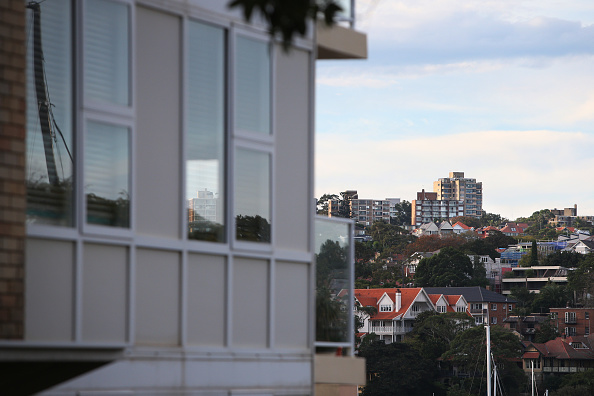Gender pay gap greatest among Australian managers
Detailed earnings information released by the ABS today reveal a clearer picture of the differences between men and women’s pay packets
Women in management experience the greatest hourly pay gap, new data from the Australian Bureau of Statistics shows.
The Survey of Employee Earnings and Hours released today showed the difference between average hourly earnings for men and women in management roles in May 2023 was $14.10 per hour, ABS head of labour statistics, Bjorn Jarvis said. In percentage terms, that represents a 19 percent difference.

While the gap was starkest at the top level, men continued to earn more per hour across all eight major occupation groups, the statistics revealed, with the smallest gap among sales workers at 7 percent.
In terms of weekly earnings, men earned an average of $1,731 and women $1,261. The average pay for all employees was $1,490 in May 2023.
“Analysing the difference between male and female earnings is complex and there is no single measure that can provide a complete picture,” Mr Jarvis said. “Hourly earnings comparisons are particularly useful in understanding gender pay differences beyond weekly earnings measures, given women are more likely to work part-time than men.”
For part time workers, where women make up the majority at 69 percent of employees, women earn more on average at $817 compared with $759 for men.
“This reflects the greater use of part-time working arrangements by women in higher paying jobs, compared to men,” Mr Jarvis says.
Across the employment sector, distributional data showed that the top 25 percent of workers earned more than $1,956 per week in May 2023 while the lowest 25 percent earned less than $785. On an hourly basis, managers came out on top at $67.20 per hour, followed by professionals at $60.60, followed by labourers ($32.20) and sales workers ($30.90).
This stylish family home combines a classic palette and finishes with a flexible floorplan
Just 55 minutes from Sydney, make this your creative getaway located in the majestic Hawkesbury region.
Continued stagflation and cost of living pressures are causing couples to think twice about starting a family, new data has revealed, with long term impacts expected
Australia is in the midst of a ‘baby recession’ with preliminary estimates showing the number of births in 2023 fell by more than four percent to the lowest level since 2006, according to KPMG. The consultancy firm says this reflects the impact of cost-of-living pressures on the feasibility of younger Australians starting a family.
KPMG estimates that 289,100 babies were born in 2023. This compares to 300,684 babies in 2022 and 309,996 in 2021, according to the Australian Bureau of Statistics (ABS). KPMG urban economist Terry Rawnsley said weak economic growth often leads to a reduced number of births. In 2023, ABS data shows gross domestic product (GDP) fell to 1.5 percent. Despite the population growing by 2.5 percent in 2023, GDP on a per capita basis went into negative territory, down one percent over the 12 months.
“Birth rates provide insight into long-term population growth as well as the current confidence of Australian families,” said Mr Rawnsley. “We haven’t seen such a sharp drop in births in Australia since the period of economic stagflation in the 1970s, which coincided with the initial widespread adoption of the contraceptive pill.”
Mr Rawnsley said many Australian couples delayed starting a family while the pandemic played out in 2020. The number of births fell from 305,832 in 2019 to 294,369 in 2020. Then in 2021, strong employment and vast amounts of stimulus money, along with high household savings due to lockdowns, gave couples better financial means to have a baby. This led to a rebound in births.
However, the re-opening of the global economy in 2022 led to soaring inflation. By the start of 2023, the Australian consumer price index (CPI) had risen to its highest level since 1990 at 7.8 percent per annum. By that stage, the Reserve Bank had already commenced an aggressive rate-hiking strategy to fight inflation and had raised the cash rate every month between May and December 2022.
Five more rate hikes during 2023 put further pressure on couples with mortgages and put the brakes on family formation. “This combination of the pandemic and rapid economic changes explains the spike and subsequent sharp decline in birth rates we have observed over the past four years,” Mr Rawnsley said.
The impact of high costs of living on couples’ decision to have a baby is highlighted in births data for the capital cities. KPMG estimates there were 60,860 births in Sydney in 2023, down 8.6 percent from 2019. There were 56,270 births in Melbourne, down 7.3 percent. In Perth, there were 25,020 births, down 6 percent, while in Brisbane there were 30,250 births, down 4.3 percent. Canberra was the only capital city where there was no fall in the number of births in 2023 compared to 2019.
“CPI growth in Canberra has been slightly subdued compared to that in other major cities, and the economic outlook has remained strong,” Mr Rawnsley said. “This means families have not been hurting as much as those in other capital cities, and in turn, we’ve seen a stabilisation of births in the ACT.”
This stylish family home combines a classic palette and finishes with a flexible floorplan
Just 55 minutes from Sydney, make this your creative getaway located in the majestic Hawkesbury region.


















